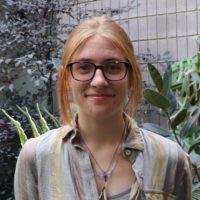
“Using Genomics to Understand Species Distribution in Threatened Aconitum noveboracense“
Project Summary:
There are over 250 species of Aconitum (Ranunculaceae) around the globe, with six being native to North America. One North American species, A. noveboracense, grows in small, isolated ecosystems. It is federally classified as threatened as of 1978, and is found in only four states: Wisconsin, Iowa, Ohio and New York. There has been conflicting research on whether A. noveboracense is actually a subset of A. columbianum, which is more populous and grows in the Western region of North America, and little is known about the Aconitum genus in North America. We performed population genetics, phylogeography and landscape genomics on four North American Aconitum species: A. noveboracense, A. columbianum, A. uncinatum, A. delphinifolium, and identified unique characteristics of A. noveboracense that differentiate it from A. columbianum. We also sought to bring clarity to the under-studied species of North American Aconitum in terms of the relationship between environmental factors and genomic attributes. We did this through analysis of RAD-Seq data, performing GWAS, PCA, species distribution modeling, and analysis of WorldClim bioclimatic variables. Our preliminary findings indicate the presence of genetic variation in North American Aconitum, and that this variation appears to be reflected in species responses to bioclimatic variables. Our results are useful for improving conservation strategies for A. noveboracense. Further, these findings help to better understand how glaciation and climate change have affected native North American ecosystems and how species adapt to local environments.
My Experience:
This has been a summer of fun, learning, self-development and making new connections. Before the summer, I was unsure of my career path, but my time in this REU has given me insight into what my next steps will be as I graduate this fall. The research experience I gained working in the BTI Computational Biology Center is invaluable and I am excited to use the skills I’ve gained as I move on to my next chapter. I am grateful to my mentors, lab mates and peers in my cohort; the people I met this summer are well beyond network connections, they are lifelong friends, who taught me very much in a short period of time.
